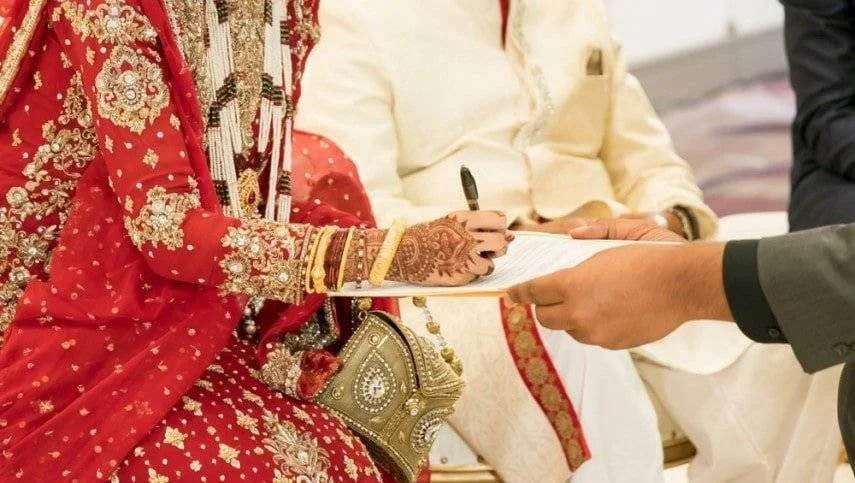Marriage is considered a sacred institution across cultures and religions, and Pakistan, with its diverse religious and cultural fabric, has specific norms and practices surrounding it. In Pakistan, the issue of second marriages, especially for men, is a multifaceted topic, shaped by religious doctrines, cultural expectations, legal frameworks, and societal attitudes. Understanding why men pursue second marriages, why women often resist, and how Islam, cultural values, and social dynamics intersect can shed light on the complexities of this issue.
This article will explore the religious and cultural basis of second marriages, examine the social resistance to second marriages from both men and women, and analyze data on marriage trends, including divorced and single men and women in Pakistan.
1. Religious Basis for Second Marriages in Islam
1.1 Polygamy in Islam
Islamic teachings permit men to marry more than one wife under specific conditions. Polygamy, the practice of marrying multiple wives, is allowed but not mandated. In the Qur’an, Surah An-Nisa (4:3) outlines the conditions for having up to four wives:
“If you fear that you shall not be able to deal justly with the orphans, marry women of your choice, two, or three, or four; but if you fear that you shall not be able to deal justly (with them), then only one.”
The key condition emphasized here is the ability to treat all wives justly. The practice is permitted, but it is not encouraged without meeting the responsibility of equal treatment in financial, emotional, and social aspects.
1.2 The Purpose of Polygamy in Islam
Polygamy in Islam serves practical and compassionate purposes. Historically, polygamy allowed men to care for widows, orphans, and other vulnerable women in society. In times of war, when men were killed in large numbers, polygamy provided protection and care for women left without support.
Islamic scholars emphasize that polygamy is a responsibility rather than a privilege, requiring men to be just and financially capable of supporting multiple wives. In practice, however, the application of polygamy in Muslim societies, including Pakistan, varies widely.
2. The Cultural Resistance to Second Marriages in Pakistan
2.1 Pakistani Cultural Attitudes Toward Polygamy
Despite the religious allowance, polygamy is not widely accepted or practiced in Pakistan. Pakistani culture, deeply influenced by South Asian traditions, places a high value on monogamous relationships. The cultural disapproval of polygamy is rooted in several factors, including:
- Cultural Continuity from Hindu Traditions: Pakistan shares a long history with Hindu culture, especially prior to the partition of India in 1947. Hinduism does not permit polygamy, and this cultural norm has influenced societal attitudes in Pakistan. Even though Pakistan is predominantly Muslim, many cultural practices still bear the imprint of the pre-partition era.
- Social Stigma: A second marriage is often viewed with suspicion, especially for women. A man’s second marriage can be seen as a failure of the first marriage, and there is social pressure on women to resist their husbands taking another wife. Women in Pakistan often view a second marriage as a threat to their emotional and financial security, leading to resistance.
- Economic Factors: Financial capability plays a significant role in resistance to polygamy. Many families struggle with basic economic stability, and adding another wife and potentially more children is seen as financially burdensome.
2.2 Gender Imbalance in the Acceptance of Polygamy
While Islam allows both men and women to remarry, the societal acceptance of this is gendered. Men who take second wives are often criticized, but women who remarry after divorce or widowhood face even greater societal resistance. A divorced or widowed woman, especially with children, may struggle to find acceptance in a second marriage due to cultural biases that view such women as “damaged goods.”
2.3 The Emotional and Psychological Impact on Women
For a woman in Pakistan, her husband’s decision to marry another woman can have profound emotional and psychological consequences. Many women see this as a betrayal or a sign of inadequacy. Polygamy in Pakistan often leads to marital discord, jealousy, and conflict within the household. In many cases, the first wife may feel neglected, and the children from the first marriage might also suffer from emotional distress.
3. The Legal Framework for Second Marriages in Pakistan
3.1 Muslim Family Laws Ordinance (1961)
The legal framework for marriage in Pakistan is governed by the Muslim Family Laws Ordinance (1961), which places specific restrictions on polygamy. According to this law, a man cannot contract a second marriage without the written consent of his first wife and the permission of the local Union Council. If a man marries a second wife without fulfilling these requirements, he is subject to penalties, including imprisonment or fines.
3.2 Legal Implications and Loopholes
Despite the legal restrictions, many men in Pakistan still enter into second marriages without obtaining the required permission. In such cases, these marriages are often performed secretly, leaving the first wife and children unaware. This leads to legal complications, particularly when it comes to inheritance, financial rights, and custody of children.
4. Why Men Pursue Second Marriages in Pakistan
4.1 Personal Desires and Social Pressure
Many men pursue second marriages due to personal desires for companionship, variety, or fulfillment of unmet emotional needs. Some men seek younger wives or more children, especially if the first wife is unable to bear children. In rural areas, there is also social pressure on men to marry multiple wives, as it can be seen as a sign of wealth, status, and masculinity.
4.2 Family Expectations
In some cases, second marriages are arranged by families, particularly in cases where the first wife is ill, infertile, or unable to perform traditional domestic roles. Families, particularly in patriarchal rural setups, may encourage or pressure men to take a second wife to ensure the continuation of the family lineage or to gain economic advantages.
5. Why Women Resist Second Marriages in Pakistan
5.1 Insecurity and Fear of Neglect
A primary reason for women’s resistance to second marriages is the fear of neglect. Many women believe that once their husbands marry another wife, they will lose their importance in the household. This insecurity often stems from cultural and financial dependence on men in patriarchal societies.
5.2 Economic and Social Consequences
Second marriages often create financial instability for the first wife and her children. Many women fear that their husbands’ financial resources will be divided between two households, leaving them with fewer resources. In addition, there is a social stigma attached to being a “co-wife,” which can lead to isolation and emotional distress.
6. The Social Dynamics of Divorced and Single Men and Women in Pakistan
6.1 Divorce Trends in Pakistan
Divorce rates in Pakistan have been on the rise, particularly in urban areas. Although divorce is still relatively rare compared to other countries, the stigma around it is gradually diminishing, especially among younger, educated populations. Divorced women often face greater social stigma than divorced men, and their prospects for remarriage are limited by cultural expectations.
6.2 Single Men and Women in Pakistan
Single men and women, particularly those who remain unmarried into their late twenties and beyond, face significant social pressure in Pakistan. Men are often expected to marry early and provide for their families, while women are expected to marry young and start families. The cultural pressure on both genders to marry can be overwhelming, and those who remain single for too long may face ostracization.
7. Data on Second Marriages, Divorce, and Single Men and Women in Pakistan
7.1 Marriage and Divorce Statistics
As of recent estimates, around 70-75% of Pakistani men are married by the age of 30, and approximately 60-65% of women are married by the same age. Divorce rates have been increasing, especially in urban areas like Karachi and Lahore, with estimates suggesting that around 15% of marriages in urban areas end in divorce.
7.2 Second Marriages Data
Reliable data on second marriages in Pakistan is limited due to the secretive nature of many such marriages. However, anecdotal evidence suggests that second marriages are more common in rural areas than in urban settings. The number of second marriages is difficult to quantify due to underreporting and the prevalence of unregistered marriages, particularly in rural regions.

Conclusion
Second marriages in Pakistan are a complex issue shaped by religious, cultural, legal, and social factors. While Islam allows men to take multiple wives under strict conditions of fairness and justice, Pakistani society, influenced by cultural traditions and economic realities, largely resists this practice. The resistance from women, the legal hurdles, and the emotional and financial consequences of second marriages all contribute to the relatively low incidence of polygamy in Pakistan.
For men, the pursuit of second marriages may stem from personal, familial, or societal reasons, while for women, the resistance is often driven by fears of neglect, economic insecurity, and social stigma. The issue of second marriages in Pakistan cannot be understood in isolation, as it intersects with broader issues of gender roles, marital expectations, and family dynamics in a deeply traditional society.








